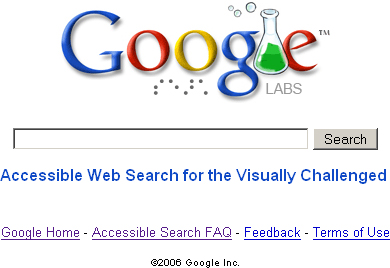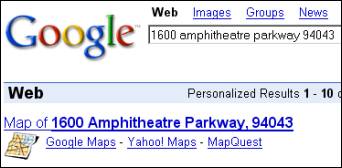Stefanie Olsen, CNET News.com
Source: insight.zdnet.co.uk
The social-networking craze is sweeping the Web, but for once the search giant seems to be taking a back seat.
MySpace.com, Facebook.com and others have turned heads for their skyrocketing traffic and massive appeal among young people, who flock to the sites by the millions to bond via photos, videos, blogs, email and instant messaging. Meanwhile, top portals MSN and Yahoo, threatened by the prospect of losing favoured-site ranking to MySpace, have begun to organise their applications around social networking as well.
But Google's two-year-old social network Orkut — which connects friends and friends of friends around shared interests, but does not include blogging or video features — has lagged in the popularity contest. It's still not widely available and has yet to adopt the Google brand. "It proved to be a problem for Google so now they're watching it," said Stephen Arnold, author of "The Google Legacy," referring to accusations that Orkut members promoted gang-related violence in countries such as Brazil.
But as Google takes time to tinker with another one of its many young services, competitors are fast encroaching on the company's other turf.
Blogger, for example, was the Web's top blog-publishing tool when Google bought it in February 2003. Although Google hasn't turned the service into a full-on social network, Nielsen/NetRatings considers blogging a social activity.
In the last year, MySpace, which lets members include blogs on their personal pages, surpassed Google's Blogger as the top social-networking site by Nielsen's measure in the US. In May 2006, Blogger had 20 million unique visitors, up 67 percent from May 2005. In contrast, MySpace drew 42 million unique visitors in May, up 329 percent from the same period a year ago, according to Nielsen.
Orkut fell below Nielsen's reporting cut-off at roughly 300,000 unique visitors.
According to Google, the company is "committed" to social networking through Blogger, Google Video and Orkut. "Where it makes sense, Google continues to integrate its products to provide the best user-experience possible, as with Gmail and Google Talk, for example," according to an unnamed spokesperson.
Of course, some proponents say Google is savvy not to invest heavily in services that have questionable benefit to its search and advertising business, which is worth near $6bn annually. What's more likely, they say, is that Google will invest in technologies that can improve Web search and its rate of return on advertising "clicks".
"Fundamentally, information, not people, is Google's forte," said Esther Dyson, editor of tech newsletter Release 1.0, which is owned by CNET Networks, publisher of ZDNet UK. "It will be interesting over time to see how close Google can come to understanding people through algorithms," she added.
The rival advantage
Onlookers have doubted the staying power of social networks such as MySpace, calling them fads. But efforts to get into social networking by portals Microsoft and Yahoo show that the social services can resonate with Web surfers and prove beneficial to display and search-related advertising.
Microsoft, for example, is using social networking to gain a tactical advantage over rival Google.
Moz Hussain, Microsoft group product manager at MSN Spaces, said that by incorporating social features into its blog publishing tool MSN Spaces, the company is driving consumer loyalty and ad revenue.
MSN Spaces, which was launched in December 2004, has become the most popular social network on a global basis, according to ComScore Networks. That's a fact the software giant attributes to the social-networking features, inserted last year, that alert people to changes within friends' blogs via MSN instant messenger.
"The obvious way you make money is by generating a large number of page views and (displaying) ads against those pages," Hussain said. But he added: "If people use two of our products, they become much more valuable and use all our products more."
The result has meant more display and search-related advertising, he said.
In the next month or two, Hussain said the company will infuse more networking features into MSN Spaces and its social-network brand, Windows Live Spaces. With the tool, people will be able to see lists of friends on their blogs or IM windows, and then, via an upcoming product called "Friends Explorer," use the cursor to peruse friends of friends.
Arnold, the author, said social software is ultimately a shortcut for MSN in the search race because it provides the software giant with easy markers for spidering the Web and producing relevant results.
Google introduced Orkut in January 2004 as the sideline project of one of its engineers, Orkut Buyukkokten. Like most of the company's new products, Google's Orkut enjoyed enormous buzz early on… thanks to an invitation-only policy that included many Silicon Valley movers and shakers as community members. But since then, Orkut hasn't grown significantly in the US compared with the speedy trajectory of other social networks such as MySpace.
Most of Orkut's following comes from Portuguese-speaking countries, and Google has encountered problems with the Brazilian Government for member content promoting gang violence in that country.
In May, Orkut had 210,000 visitors in the US, up 85 percent from the year earlier, according to ComScore.
Worldwide, Orkut enjoyed more popularity. It ranked fifth in May by ComScore's measure, more than doubling its visitors for the year to 33.7 million. In contrast, MSN Spaces doubled its visitors to 101 million, and MySpace grew 250 percent to 74 million, according to ComScore.
In contrast, Yahoo's 360 amassed nearly 5 million visitors in May since launching in March 2005. Microsoft's MSN Spaces drew 9.6 million visitors, up more than 200 percent in that same period. And MySpace attracted 51.4 million visitors, up 230 percent year over year.
Social networking demands attention not only for its expanding influence among Web surfers, but also because sites such as MySpace are encroaching on the amount of search traffic on the Internet — a key driver of the $14bn online advertising business.
In May, for the first time MySpace joined the ranks of top search sites counted by ComScore Media Metrix, a New York-based measurement firm. In June, it continued to hold the sixth slot, garnering about 53 million searches, behind number one Google, followed by, in order of ranking: Yahoo, MSN, AOL and Ask, according to ComScore. It reaches only a small fraction of the market versus Google's 43 percent reach, but its newly held recognition could mean that social networks are the portal of the future, investors say.
This could indicate that Google needs to cultivate its own social aspirations quickly in order to protect its multibillion-dollar advertising business.
"Google was early to the pure-play social network party, which was certainly smart at the time," said David Hornik, a venture capitalist at August Capital. "But social networking has evolved into an important underpinning of other key experiences, such as photo sharing with Flickr or blogging with Vox," a new personal blogging service.
"Google would be smart to start thinking of social networks as infrastructure for other applications on their network as Yahoo has done," Hornik added.
Robert Goldberg, an early stage venture capitalist at Ridgelift Ventures, doubts Google will pay much attention to social networking, and will instead opt to focus on advertising technologies and services such as Google Checkout, the company's recently launched payment service.
"There are a few things that Google's going to get deadly serious about," said Goldberg, "but social networking is not one of them."







 We live in a crazy world. We have search engines that are really advertising companies, individual bloggers taking VC money, and Netscape is now a social news site. Taken out of context, you would think that we've entered a web twilight zone. But with the way everything has changed and grown, these things don't seem so out of place. It is against this backdrop that Adobe, the worlds 4th largest software company, seems to be slowly moving into a space occupied by so many startups - the hosted web application.
We live in a crazy world. We have search engines that are really advertising companies, individual bloggers taking VC money, and Netscape is now a social news site. Taken out of context, you would think that we've entered a web twilight zone. But with the way everything has changed and grown, these things don't seem so out of place. It is against this backdrop that Adobe, the worlds 4th largest software company, seems to be slowly moving into a space occupied by so many startups - the hosted web application.  JamJar
JamJar

